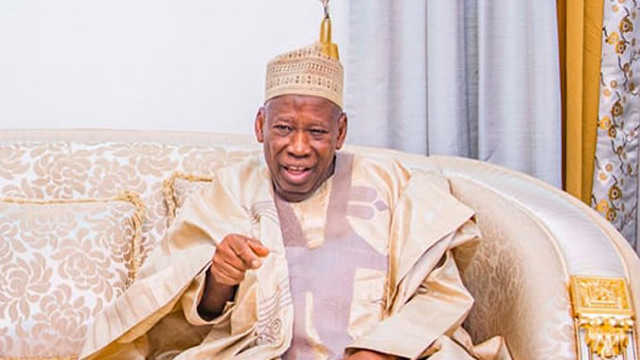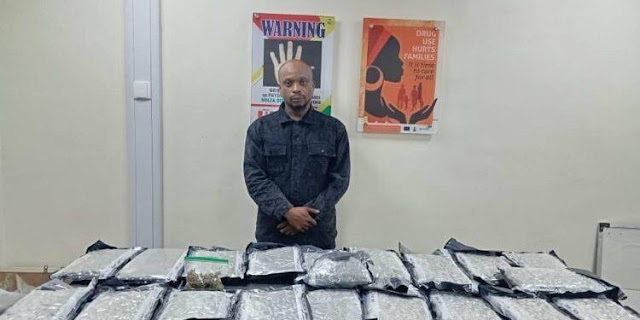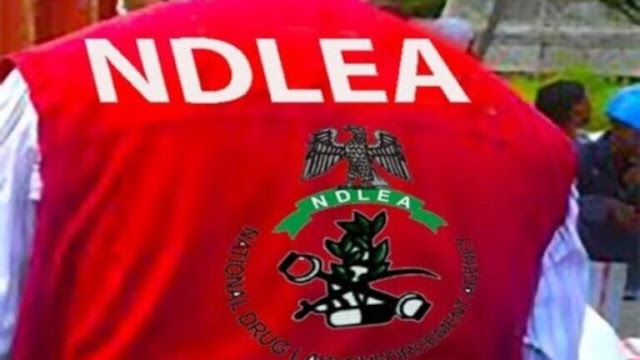In a recent development that has stirred significant interest within Nigeria’s political landscape, the National Chairman of the All Progressives Congress (APC), Dr. Abdullahi Umar Ganduje, has publicly addressed rumors suggesting his intention to abandon the ruling party for the African Democratic Congress (ADC). The speculations, which have been circulating in political circles and amplified by social media, have raised questions about the stability of the APC and the future direction of its leadership. Ganduje’s response, delivered during a press briefing in Abuja, was unequivocal, as he dismissed the rumors as baseless and reaffirmed his commitment to the APC’s mission of advancing Nigeria’s development under its banner.
Background: The APC and Ganduje’s Role
The APC, Nigeria’s ruling party since 2015, has been a dominant force in the country’s political arena, steering the nation through a complex web of economic, social, and security challenges. Dr. Abdullahi Umar Ganduje, a seasoned politician and former governor of Kano State, assumed the role of APC National Chairman in August 2023, following a period of internal wrangling within the party. His appointment was seen as a strategic move to consolidate the party’s influence in the northern region, particularly in Kano, a politically significant state with a history of intense electoral competition.
Ganduje’s tenure as chairman has not been without controversy. His leadership style, political maneuvers, and past governance record have often been subjects of intense scrutiny. Critics have pointed to alleged mismanagement during his time as Kano State governor, while supporters argue that his experience and political acumen have been instrumental in stabilizing the APC during turbulent times. The recent rumors of his potential defection to the ADC, a smaller opposition party, have added fuel to ongoing debates about his loyalty and the broader dynamics within the APC as the 2027 general elections approach.
The Defection Rumors: Origins and Context
The speculation about Ganduje’s possible move to the ADC emerged from a combination of political gossip, media reports, and strategic leaks, which are not uncommon in Nigeria’s highly competitive political environment. The ADC, though not as prominent as the APC or the Peoples Democratic Party (PDP), has been positioning itself as a viable alternative for politicians disillusioned with the major parties. In recent years, the ADC has attracted defectors from both the APC and PDP, leveraging its platform to appeal to younger voters and those seeking a less polarized political option.
The rumors gained traction following reports of alleged tensions between Ganduje and certain factions within the APC. Some analysts suggested that dissatisfaction with his leadership, coupled with unresolved disputes from his time as Kano governor, could be pushing him toward exploring other political platforms. Additionally, the ADC’s recent efforts to expand its influence in northern Nigeria, particularly in states like Kano, fueled speculation that Ganduje might be considering a strategic alignment with the party to maintain his political relevance.
Social media platforms, particularly X, played a significant role in amplifying these rumors. Posts from anonymous accounts and political commentators hinted at closed-door meetings between Ganduje and ADC leaders, though no concrete evidence was provided to substantiate these claims. The rapid spread of such narratives underscores the power of digital media in shaping public perception and the challenges political figures face in managing their image in an era of instant communication.
Ganduje’s Response: A Firm Rebuttal
During a press conference held at the APC national secretariat in Abuja, Ganduje addressed the defection rumors head-on, describing them as “malicious” and “orchestrated by detractors” intent on destabilizing the APC. Flanked by senior party officials, including members of the National Working Committee (NWC), Ganduje emphasized his unwavering loyalty to the APC and its leadership, including President Bola Ahmed Tinubu, whose administration the party continues to support.
“I have no reason to leave the APC,” Ganduje stated, his tone resolute. “This party has been my political home, and I remain committed to its ideals and objectives. Those spreading these rumors are enemies of progress who want to create confusion and division within our ranks. I urge our supporters and the general public to disregard such falsehoods.”
Ganduje went further to outline his vision for the APC, highlighting ongoing efforts to strengthen the party’s structures ahead of future elections. He pointed to initiatives aimed at improving internal democracy, resolving intra-party conflicts, and expanding the APC’s grassroots mobilization efforts. By presenting a forward-looking agenda, Ganduje sought to shift the narrative away from the defection rumors and toward the party’s broader goals.
Political Implications: Stability and Speculation
The rumors of Ganduje’s potential defection, though dismissed, have significant implications for the APC and Nigeria’s political landscape. The APC has faced internal challenges in recent years, including factionalism, leadership disputes, and defections by prominent members. The party’s ability to maintain cohesion is critical, especially as it navigates the complexities of governing a diverse nation while preparing for the 2027 elections.
Ganduje’s rebuttal may temporarily quell speculation, but it also highlights the fragility of political alliances in Nigeria. Defections are a common feature of the country’s politics, with politicians frequently switching parties to advance their ambitions or secure better electoral prospects. The ADC, while not a major player, could benefit from such defections by attracting high-profile figures like Ganduje, thereby boosting its visibility and influence.
Moreover, the rumors underscore the ongoing power struggles within the APC. As the party’s national chairman, Ganduje wields significant influence over its direction, including decisions related to primaries, candidate selection, and resource allocation. Any perception of disloyalty or instability could weaken his authority and embolden rival factions within the party. Political analysts suggest that Ganduje’s ability to maintain unity and project strength will be crucial in the coming months.
The ADC’s Perspective: Opportunity or Overreach?
While Ganduje has denied any plans to join the ADC, the party itself has remained relatively silent on the matter. In a brief statement, an ADC spokesperson described the rumors as “speculative” but welcomed the attention, noting that the party is open to engaging with leaders who share its vision for a more inclusive and progressive Nigeria. This response reflects the ADC’s strategy of positioning itself as a viable alternative to the APC and PDP, particularly in regions where dissatisfaction with the major parties is high.
The ADC’s appeal lies in its relatively clean slate compared to the APC and PDP, which have both been criticized for corruption, inefficiency, and internal divisions. However, the party faces significant challenges, including limited financial resources, a smaller grassroots network, and the difficulty of competing with the entrenched machinery of the major parties. A high-profile defection like Ganduje’s could provide a significant boost, but it would also risk alienating some of the ADC’s current supporters, who may view such moves as opportunistic.
Kano’s Political Dynamics: A Key Factor
Ganduje’s political base in Kano State adds another layer of complexity to the defection rumors. Kano is one of Nigeria’s most populous and politically influential states, with a history of intense rivalry between the APC and opposition parties, particularly the New Nigeria Peoples Party (NNPP). During his tenure as governor from 2015 to 2023, Ganduje consolidated his influence in Kano, but his administration was marred by controversies, including allegations of corruption and a bitter fallout with his former deputy, Senator Rabiu Kwankwaso, now a leading figure in the NNPP.
The 2023 governorship election in Kano saw the NNPP’s Abba Kabir Yusuf defeat the APC’s candidate, dealing a blow to Ganduje’s political machine. The loss fueled speculation that Ganduje might be seeking new avenues to maintain his relevance in Kano and beyond. The ADC, with its growing presence in the north, could theoretically serve as a platform for Ganduje to rebuild his influence, though such a move would carry significant risks, including alienating his loyalists within the APC.
Broader Context: Nigeria’s Political Realignment
The rumors surrounding Ganduje’s potential defection reflect broader trends in Nigeria’s political landscape. As the 2027 elections loom, politicians across the spectrum are reevaluating their alliances and strategies. The APC, despite its dominance, faces challenges such as economic hardships, insecurity, and public dissatisfaction with governance. These issues have created opportunities for smaller parties like the ADC to gain traction, particularly among younger voters and those disillusioned with the status quo.
At the same time, the APC’s internal dynamics are under scrutiny. President Tinubu’s leadership has been a stabilizing factor, but questions remain about the party’s ability to manage succession and maintain unity after his tenure. Ganduje’s role as national chairman places him at the center of these discussions, and his actions in the coming years will likely shape the APC’s trajectory.
Public Reaction and Media Coverage
The defection rumors have sparked widespread debate among Nigerians, with opinions divided along political and regional lines. Supporters of the APC have rallied behind Ganduje, praising his loyalty and dismissing the rumors as opposition tactics. Others, however, see the speculation as evidence of deeper issues within the party, with some calling for greater transparency and accountability in its leadership.
Media outlets have played a significant role in shaping the narrative, with some amplifying the rumors and others focusing on Ganduje’s rebuttal. The role of social media, particularly platforms like X, cannot be overstated. Posts from political analysts, activists, and ordinary citizens have kept the issue alive, with hashtags related to Ganduje’s alleged defection trending in Nigeria.
Looking Ahead: Ganduje’s Next Moves
As the dust settles on the defection rumors, all eyes will be on Ganduje and the APC’s next steps. For Ganduje, maintaining credibility and consolidating his leadership within the party will be paramount. His ability to navigate internal challenges, strengthen the APC’s electoral prospects, and counter opposition narratives will determine his legacy as national chairman.
For the APC, the episode serves as a reminder of the need for unity and strategic communication. The party’s ability to manage its public image, address internal grievances, and deliver on its promises to Nigerians will be critical as it prepares for the 2027 elections. Meanwhile, the ADC and other opposition parties will continue to explore opportunities to capitalize on any perceived weaknesses in the APC’s armor.
Conclusion: A Test of Loyalty and Leadership
Dr. Abdullahi Umar Ganduje’s firm denial of plans to defect to the ADC has put to rest, at least for now, one of the most intriguing political rumors of recent months. However, the episode underscores the fluid and unpredictable nature of Nigerian politics, where loyalties are tested, and alliances shift rapidly. As the APC navigates its internal and external challenges, Ganduje’s leadership will be closely watched, not only by party members but also by a public eager for stability and progress.
The broader implications of this saga extend beyond Ganduje himself, touching on questions of party loyalty, political strategy, and the evolving dynamics of Nigeria’s democracy. Whether the APC can maintain its dominance or whether smaller parties like the ADC will gain ground remains to be seen. For now, Ganduje’s commitment to the APC appears steadfast, but in Nigeria’s ever-changing political landscape, nothing is certain.






